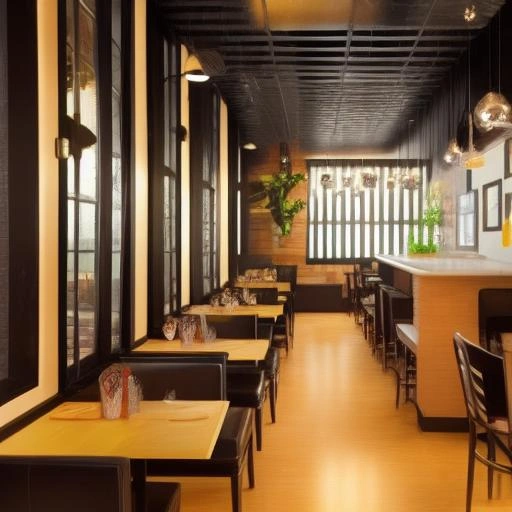
Starting a restaurant is an exciting dream for many, but before you can welcome your first customer, there’s a crucial step: securing the right permits and licenses. Think of these as your restaurant’s official “go-ahead” papers. Without them, you could face fines, delays, or even have to shut down your business. This guide breaks down the essential permits and licenses you’ll need, making the process easier to understand.
Understanding the Basics
Before diving into specifics, let’s understand why these documents are important:
- They ensure safety: Many permits relate to food safety, ensuring you’re serving food that won’t make people sick.
- They follow the law: Every city, state, and sometimes even county has rules about how businesses operate, including restaurants. These permits and licenses make sure you’re following these laws.
- They protect your business: Having the right paperwork means you’re operating legally, protecting you from legal troubles down the line.
Types of Permits and Licenses
The specific permits and licenses you’ll need can vary depending on your location and the type of restaurant you plan to open. However, there are some common ones you’ll likely encounter.
Business License
This is the most basic license you’ll need. It shows you’re officially registered to operate a business.
Federal Business License
- Employer Identification Number (EIN): If you’re planning to hire employees, you’ll need an EIN from the IRS (Internal Revenue Service). It’s like a social security number for your business.
- Federal Tax ID: You’ll need this to pay federal taxes.
State Business License
- Each state has its own registration process. This usually involves registering your business name and choosing a business structure (sole proprietorship, LLC, corporation).
Local Business License
- Your city or county might also require a local business license. Check with your local government office for specific requirements.
Food Handling and Safety Permits
These permits are crucial for the health and safety of your customers.
Food Handler’s Permit
- These are sometimes required for all employees who handle food. They prove that the staff has been trained in proper food safety practices. The training usually covers topics like handwashing, preventing cross-contamination, and safe food storage.
Food Manager Certification
- Often, at least one person in your restaurant, such as the manager or chef, must have this certificate. This person will be responsible for making sure food safety standards are followed in the restaurant.
Health Permit
- A health permit is necessary to operate a food establishment. Your local health department will inspect your restaurant to ensure it meets all safety and sanitary standards. This often involves a detailed check of your kitchen, storage areas, and waste disposal systems. You need to pass the inspection to get the permit.
Building and Construction Permits
If you’re building a new restaurant or making major changes to an existing building, you’ll need these permits.
Building Permit
- Before starting any renovations or construction, you’ll need a building permit from your local building department. This ensures that your construction is done safely and according to local codes.
Electrical Permit
- Electrical work needs to be done by a licensed electrician, and you’ll need a permit for this, too. It ensures all electrical wiring is safe and up to code.
Plumbing Permit
- Plumbing systems need to be properly installed and up to code to ensure sanitation and safety. You’ll need a plumbing permit for any installation or changes.
Fire Safety Permit
- This permit ensures that your restaurant is safe from fire hazards. Your local fire department will inspect your building and make sure that you have the right fire suppression and prevention equipment, like fire extinguishers, sprinklers, and emergency exits.
Alcohol-Related Licenses
If you plan to serve alcohol, this is a whole different level of permitting.
Liquor License
- This is one of the most complex and expensive licenses to obtain. The specific requirements vary widely by state and sometimes even by city. You may need different licenses for different types of alcohol (beer, wine, spirits). The number of available licenses is often limited.
Server Permit for Alcohol
- In many places, your employees who serve alcohol must have a separate permit to show that they’ve been trained in responsible alcohol service.
Signage Permit
- Before putting up any sign for your restaurant, you’ll likely need a sign permit. These ensure that your signage meets local codes about size, placement, and design.
Other Potential Permits and Licenses
Depending on your specific situation, you may need:
- Music License: If you plan to play music for customers, you might need a license to legally play copyrighted songs.
- Sales Tax Permit: This will allow you to collect sales tax from your customers and remit it to the government.
- Trash Removal Permit: Some localities require a permit for waste removal.
- Accessibility Permits: To ensure compliance with the Americans with Disabilities Act (ADA), you might need an accessibility permit.
- Outdoor Seating Permit: If you plan on having tables outside, you may require a separate permit for outdoor seating.
The Process of Obtaining Permits and Licenses
Getting all these permits and licenses can seem overwhelming, but breaking it down into steps can make it more manageable:
- Research: The first step is thorough research. Check the websites of your local, state, and federal government agencies to find out which permits and licenses apply to you.
- Create a Checklist: Create a detailed checklist of everything you’ll need. This will help keep you organized throughout the process.
- Contact the Authorities: Reach out to the agencies responsible for issuing permits. Ask for specific requirements and processes.
- Gather Documents: Collect all the necessary paperwork. This might include proof of identity, business plans, blueprints, etc.
- Submit Applications: Fill out the applications accurately and completely. Pay all required fees.
- Attend Inspections: Be prepared for multiple inspections from different agencies. Make sure your restaurant is ready for them.
- Follow Up: If any applications are taking too long, follow up with the agencies.
- Keep Records: Once you receive permits and licenses, keep them organized and updated. Some need to be renewed regularly.
Tips for Success
Here are some additional tips to make the process smoother:
- Start Early: Don’t wait until the last minute to apply for permits and licenses. The process can take weeks or even months.
- Be Patient: The process can be frustrating. Stay patient and persistent.
- Hire a Consultant: If you’re overwhelmed, consider hiring a business consultant or lawyer who specializes in restaurant permits and licenses.
- Join a Restaurant Association: You may find local restaurant associations who can help you navigate the permitting process.
- Network: Talk to other restaurant owners in your area. They can provide valuable insights and advice.
Common Mistakes to Avoid
- Not researching thoroughly: Many people don’t realize how many different permits they need, so it is very important to research thoroughly.
- Procrastinating: Applying for licenses at the last minute leads to delays.
- Ignoring deadlines: Failing to meet deadlines can cause delays.
- Not budgeting for permit fees: Keep in mind that there can be fees involved in these licenses and permits.
- Making mistakes on applications: Pay close attention to accuracy and double-check before submitting.
- Not keeping records: You need to keep good records of your permits.
- Trying to cut corners: It’s always better to follow the rules and be compliant rather than cut corners.
The Importance of Compliance
It is incredibly important to maintain compliance with your permits and licenses once your restaurant is open. Here’s why:
- Legal Issues: Not having the right permits can result in hefty fines, legal battles, and even having to shut down your business.
- Health and Safety: Not maintaining the proper health permits can put your customers at risk.
- Reputation: Operating with proper permits shows that you’re committed to doing business the right way.
- Business Longevity: Compliance ensures you don’t have unnecessary interruptions to your operations.
- Insurance: Many insurance companies require that you have the proper licenses in order for your insurance to cover your restaurant.
Learn Business: Your Partner in Entrepreneurship
At Learn Business, we understand the challenges of starting and running a business. Our platform provides comprehensive guidance, resources, and tools to help entrepreneurs like you navigate the complexities of the business world. From writing a solid business plan to obtaining necessary permits and licenses, our aim is to support you every step of the way. We offer courses, articles, and templates to make the process of starting your dream restaurant less daunting.
How Learn Business Can Help With Permits and Licenses
- Detailed Guides: We offer detailed guides to help you understand the specific permit and license requirements in your area.
- Checklists and Templates: Use our checklists and templates to keep organized.
- Expert Insights: Gain access to advice from experienced business professionals.
- Community Forum: Connect with other entrepreneurs in our community to ask questions, get advice, and share your experiences.
- Step-by-Step Process: We break down the complex process into clear, manageable steps, making it easy for anyone to follow along.
- Up-to-Date Information: We constantly update our resources to reflect the latest regulations.
Conclusion
Securing the necessary permits and licenses is a fundamental step in launching a successful restaurant. It may seem like a lot of work initially, but being compliant is beneficial in the long run. Starting your research early, being thorough in the application process, and maintaining your records will set your restaurant up for success. With the resources and support available, including those at Learn Business, you can confidently navigate the licensing process and embark on your restaurant entrepreneurship journey. Don’t let the permits and licenses scare you, see them as building blocks for a long and healthy business!



Leave a Reply